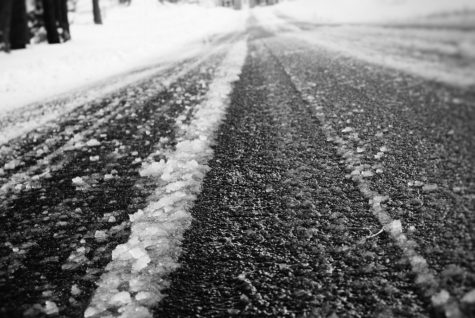Roads that Keep themselves Clear In Winter
A look into alternate road clearing technologies.
January 29, 2018
It is winter, which means roads all around the country are freezing and becoming dangerous to drivers yet, there are more than a few ways that this problem can be prevented or at least kept to a minimum.
Road salts are often used as a way to try to fix this problem but according to an article on CNN.com, they can also cause problems to animals in some aquatic environments when the snow/ice melt and run into waterways. The salt, just like table salt, contains sodium and chloride. The chloride can cause problems and even death to some aquatic animals at a high concentration when it finds its way into nearby waterways..
“I have heard about road salts being harmful to the environment and it would make a lot of since if we found another way to fix the problem of freezing roads,” junior Eric Reid said.
There are a few other materials that are currently used in Missouri to see if they get the job done. One of them is beet wastewater, what is left over when beets are processed. The carbohydrates and sugar found in this substance works to lower the melting point of ice to below -20 degrees Celsius(-4 degrees (Fahrenheit). Using the beet wastewater also lowers the amount of chloride that is applied to the road and that eventually runs into waterways. Pickle Juice is another substance that may also be able to fix the problem in a similar way as the beet wastewater according to the CNN article.
“It is pretty interesting how pickle juice can lower the melting point of ice and at least to me it seems like a pretty easy solution,” sophomore Austin Fouse said.
There is also an idea of roads that can de-ice themselves. A man named Scott Brusaw was experimenting with a solar powered surface made of a strong glass, as opposed to the usual asphalt or concrete. The solar powered element would make the inside of the glass surface act as a giant solar power generator. This generator would be able to fuel the embedded heating elements which keep the roads from freezing when a winter storm hits. Brusaw has said that the heating would work in a similar way as the heating of back windows in people’s cars. It would likely cost a lot of money to replace current road systems and replace them with ones like this but according to Brusaw the long term effect would save money.
“It seems like a very interesting option to make roads more safe when they freeze. I don’t know how cost effective it would be, but it definitely seems like it would help if it was,” sophomore Jonathan Davison said.
While road salt does get the job done there are other options that are less harmful to the environment according to the CNN article.

Icy Road. Picture courtesy of Flickr



